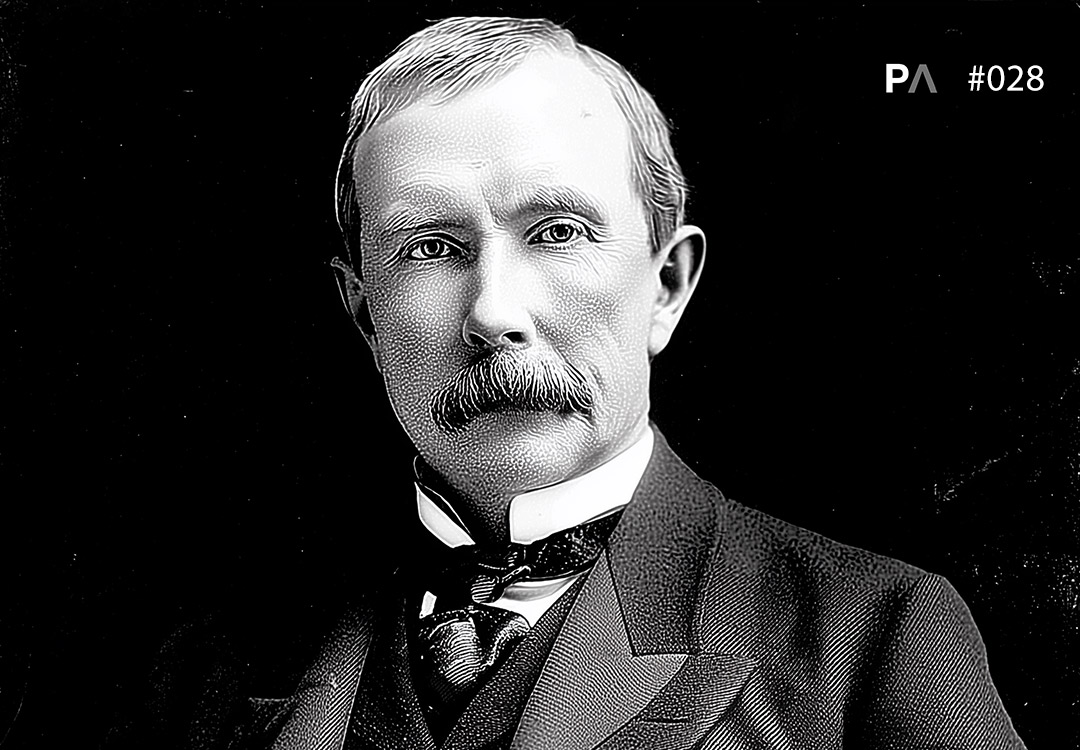10 Things I Wish I Knew 10 Years Ago
The thing about wisdom is that it's usually expensive—you pay for it with time, mistakes, and the occasional bruised ego. Looking back over the past decade of building businesses, raising kids, and navigating the chaos that comes with both, there are many things I wish I could tell my younger self.
This isn't advice, really. It's more like a lens you develop after enough wins, losses, and everything in between. These are 10 truths that became obvious only after I lived them.
The List
1. Ask for things more often
I spent years assuming people would say no, so I didn't bother asking, or limited asks. Turns out, most people default to "maybe" until you actually ask. Want that meeting? Ask. Need an introduction? Ask. Wondering if they'll consider your proposal? Ask.
I’ve always been pretty good at asking, but you can do this much more than you think.
The worst thing that happens is you end up exactly where you started. Or… you get what you want.
2. Learn to ask really good questions
When I was younger, I thought I had to have all the answers, thinking this was how you showed competence.
The smartest people in the room are usually the ones asking the best questions. "What assumptions are we making here?" "What would have to be true for this to work?" "What happens next?"
Good questions unlock insights that answering everything never will.
3. If it seems too good to be true, it is
Trusting your gut and learning how to sense what your instincts are saying is one of the most powerful decision making tools you have.
Sometimes it's just that little tiny voice helping guide you.
The "amazing" partnership opportunity, the investor who promises the moon, the hire who seems perfect but something feels off—trust that feeling.
Time has a way of proving your instincts right. Save yourself headaches and learn to listen to and hone your instincts.
4. You don't need an opinion on everything
Not every conversation needs your input. Not every debate requires your participation.
I've saved more time, energy, and relationships by staying quiet than by jumping into every discussion. Often times the smartest thing you can say is nothing at all.
5. Don't let your mood be cheap
“A man is about as big as the things that make him angry.” - Winston Churchill
Don’t allow your mood and focus to be so cheap that anyone and anything can take it.
Protect your emotional state like it's valuable real estate. Because it is.
6. Timing matters more than you think it does
Building an intuition for timing is never taught in school, and rarely discussed at work. I think people avoid the concept because it’s so far out of our control. We like to think of things based on effort, merit and our capabilities. But timing plays such a massive role in everything we do.
Finding the right timing and moving fast when you see it is a superpower. Many people win or lose based on the timing they find themselves in (completely unaware of how big of an impact it has). But there are a few people that seem to build an instinct for it.
The longer you live, the more you see it. Work to be conscious of and build this muscle.
7. Energy can unlock huge opportunities
I've seen people raise millions on pure energy. I've watched deals close because someone was genuinely excited about the vision, not because the numbers were perfect.
I have a friend who’s amazing at this. He radiates positive high energy everywhere he goes and the result is he leaves every room with people feeling pumped up.
I’m not naturally like this. But I work to get better at it.
Energy is incredibly contagious. It can open doors that logic alone never will.
8. Be ruthless about what you spend time on
Time doesn't come back. This sounds obvious until you realize how much time you waste trying to fix things that should be abandoned, or entertaining opportunities that were never real.
If something feels fundamentally broken, be careful how much time you spend on it.
9. Life happens in seasons
There will always be high highs, low lows, and plenty in between. Everything is seasonal.
We all know this, but I love the concept of “everything has seasons.” Every relationship has Winters and Summers. Same with your career, health, opportunities and more.
Thinking in seasons keeps you humble during the good times and hopeful during the tough ones.
10. Play the game with bigger numbers
Counterintuitively, big numbers are often easier to work with than small ones. Raising $1M can be harder than raising $10M, and $10M can often be harder than $100M.
The difference is trust. You can’t play with big numbers until you have earned some level of trust. When you’re young you can get there two ways: you have to either build something that shows a track record, or have the resume for it.
This is why in finance you’ll often see a resume like: high SAT scores, Ivy League School, MBA, Tier 1 firm. Whether or not the person is good, these things are trust signals. Same with building something and taking initiative, it’s a trust signal.
Don't be afraid of scale. Big number deals often take the same amount of time and energy as small ones. Play big.
A Final Thought
The funny thing about lists like this is they tend to only make sense after you've learned them the hard way. I hope I can teach my kids these lessons early, even if it's through small experiences, so they go into the world with a slightly better toolbelt than I had.
Your list might look different. It should look different. Wisdom isn't one-size-fits-all—it's earned through your own collection of victories and struggles.
Subscribe to

Get one powerful growth playbook, every Saturday morning.
Related Articles

One powerful growth playbook, delivered every Saturday morning

%20copy.png)





